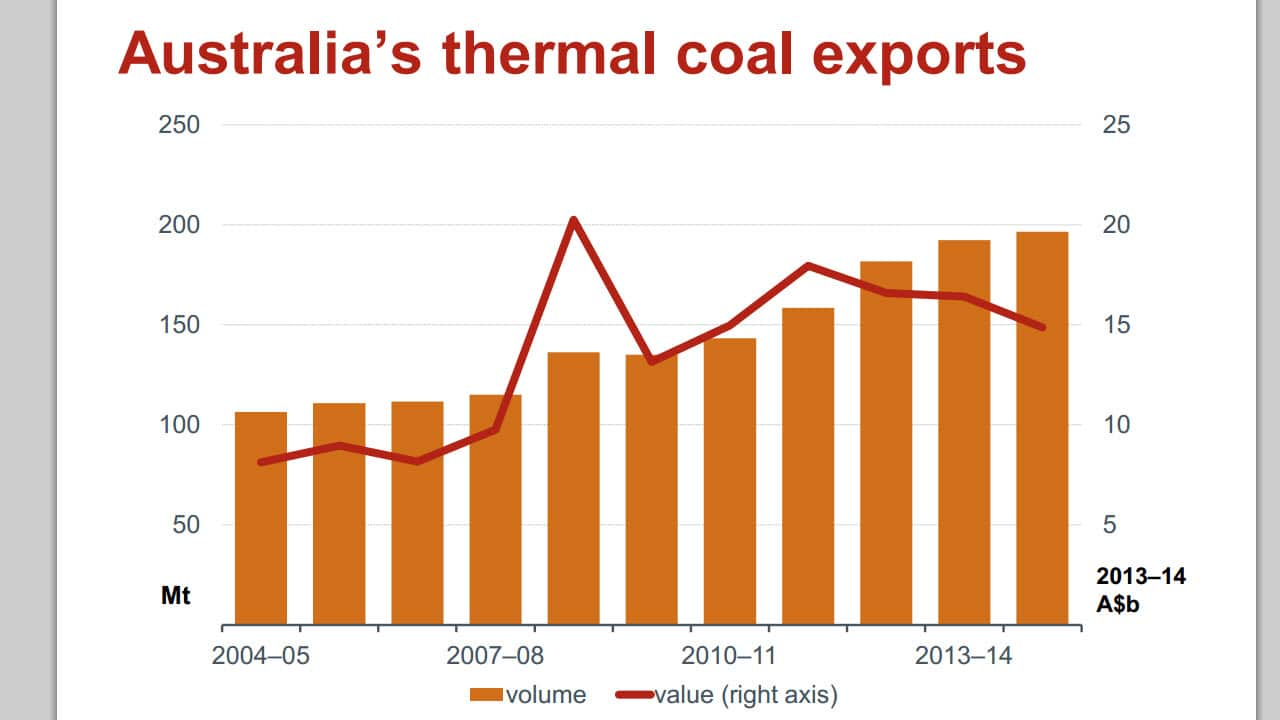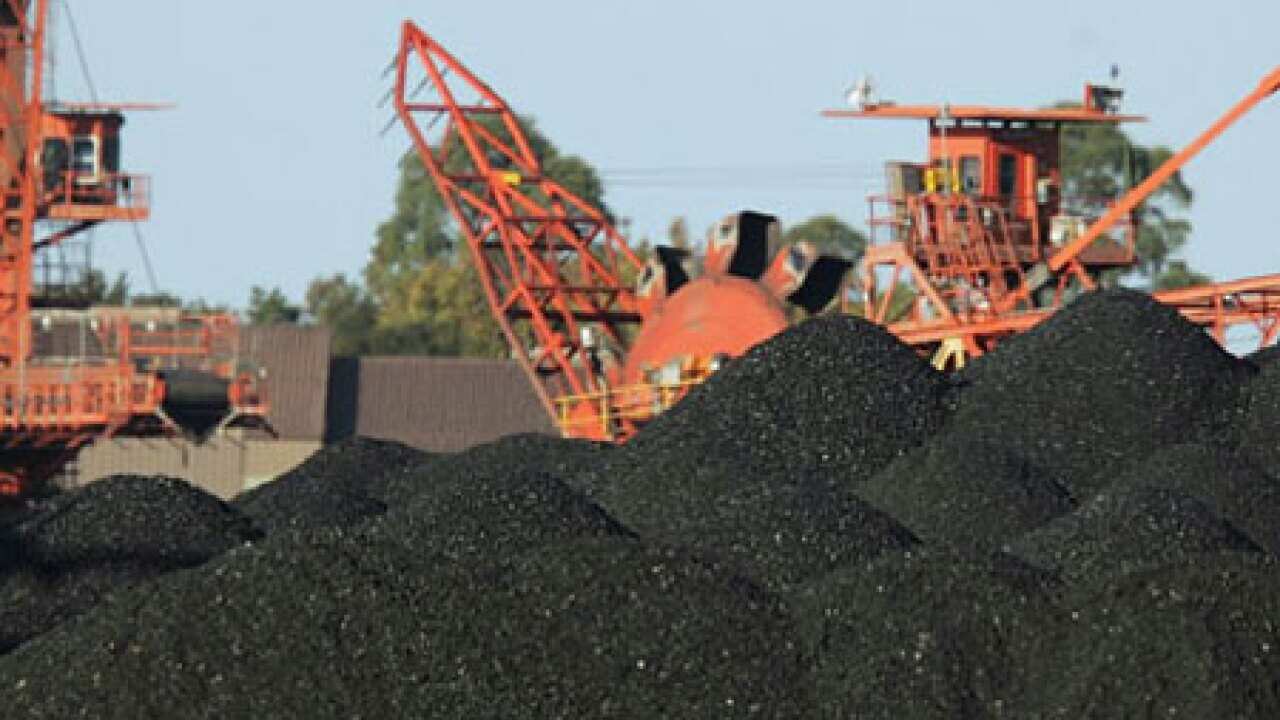China's major cities are often smothered in smog, a function of coal being burned to produce electricty for its growing economy.
Its government is now taking steps to address the pollution problem.
The National Development and Reform Commission in China is seeking to restrict the sale and import of certain low-quality thermal coal which is used to make energy.
On the surface, it may be bad news for an industry which in its entirety is worth $47 billion to the Australian economy.
Greg Evans from the Minerals Council of Australia explains the role of coal in Australia's economy:
Australia mainly produces two different types of coal: metallurgical coal which is used for the production of steel, and thermal coal which is used for electricity. Australian thermal coal export volumes have grown over the past decade, while prices have eased in recent years.
Australian thermal coal export volumes have grown over the past decade, while prices have eased in recent years.

China accounts for, at most, one quarter of total demand.
At the strictest end of China's proposed multifaceted rules there would be some impact.
Macquaire's James Rosenberg says "approximately half of Australia's thermal coal exports would not make the cut off, but that some of that can be alleviated by washing ash, which has got a financial cost. It also creates opportunities for lower emmission coal, and also eventually other forms of energy such as gas."
Greg Evans explains why China’s proposed restrictions won’t impact the local export industry:
Australian coal exporters agree and some of them sent these statements to SBS World News:
"We support efforts to improve environmental standards. We expect to be capable of meeting the proposed NDRC regulations, which stipulate a range of quality limits for both domestic and imported coal, should they be finalised and implemented, and do not anticipate a material impact to our business."
- Dean Dalla Valle, BHP Billiton President Coal
“Rio Tinto is supportive of the Chinese government’s focus on improving environmental standards.
“Coal will remain central to providing enough energy generation to support social and economic development in China and Asia for decades to come.
“China’s announcement to regulate coal quality will have little if any impact on Rio Tinto.”
- Rio Tinto spokesperson
"In Australia, taking the policy proposal at face value, it will actually create winners over the long-term because of the higher overall quality of our coal. The Minerals Council of Australia rightly points out that almost all Australian black thermal coal will be well within the thresholds for ash, sulphur and energy applying to imported coal or coal being transported more than 600km. What’s more, coal accounts for 80 per cent of China’s electricity output and all leading energy forecasting agencies agree that ongoing industrialisation will drive robust coal demand for decades to come. So it’s important to keep this in perspective and scrutinise some of these claims closely.
"For Whitehaven, while our current exports to China are minimal, the new rules being contemplated would have a positive impact our business as our coal meets the requirements already. It’s why Whitehaven is a particularly attractive investment proposition as the world looks to reduce emissions, while still being able to rely upon coal as an affordable and readily-available source oflow ash and low sulphur coal. It’s also worth remembering that, according to the International Energy Agency, by 2035, 76 per cent of world energy demands will continue to be met by fossil fuels, including high-quality thermal coal."
- Paul Flynn, Whitehaven Coal CEO
While the industry continues to decipher what China's proposals actually mean, in a note, analysts at IHS Energy however, suggest import tonnages may be comparitavely low for some time.
CommSec doesn't believe the new rules will impact the Australian dollar.
The rules will come into effect on the first of January.
Share

